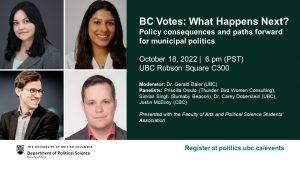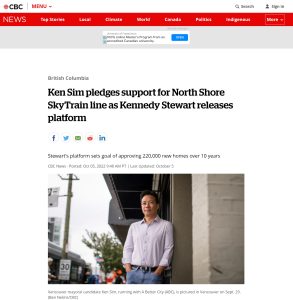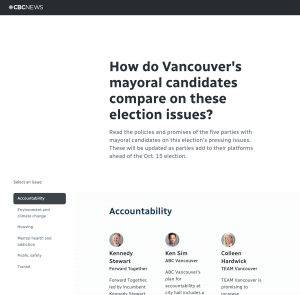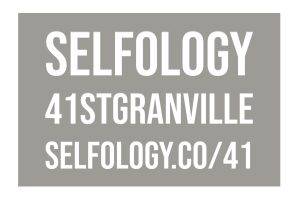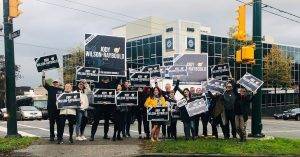City of Vancouver
CoV Matters
selfology.co/VCE
ology.land/VCE
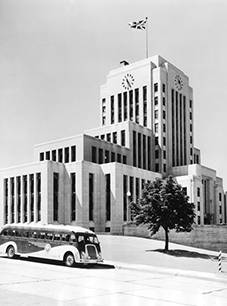
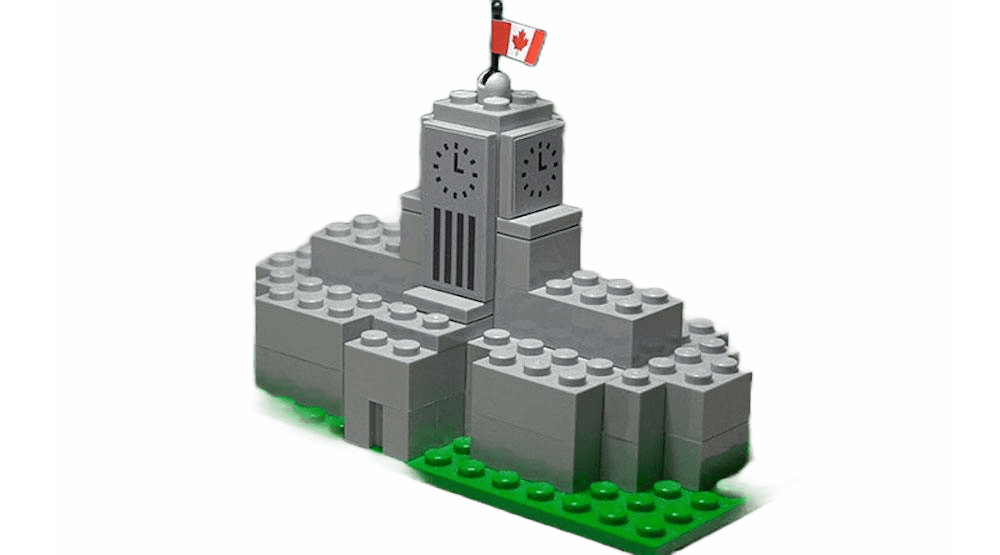
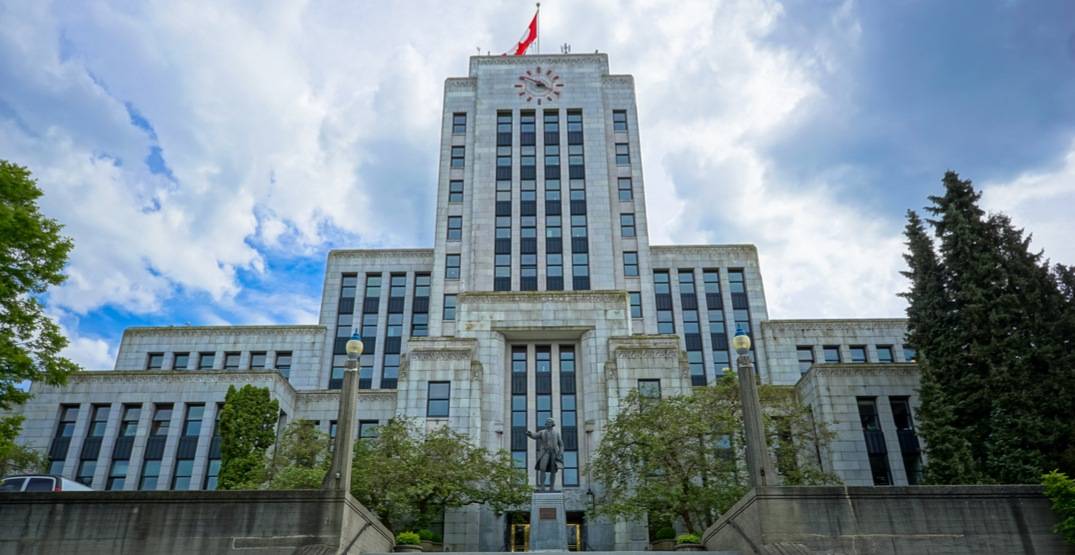

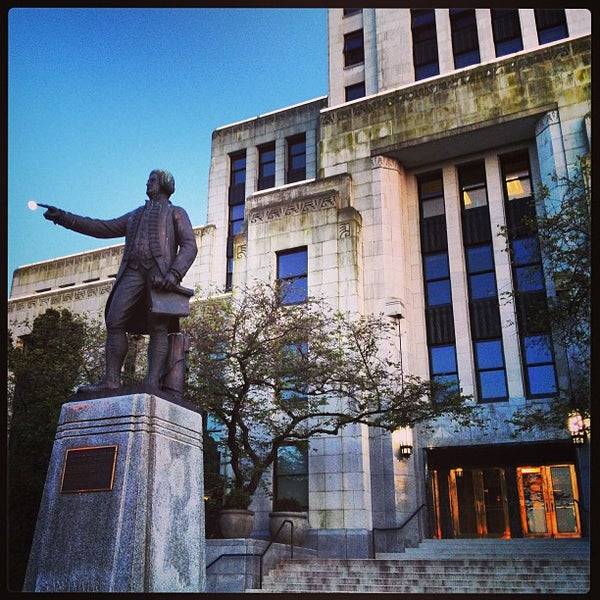
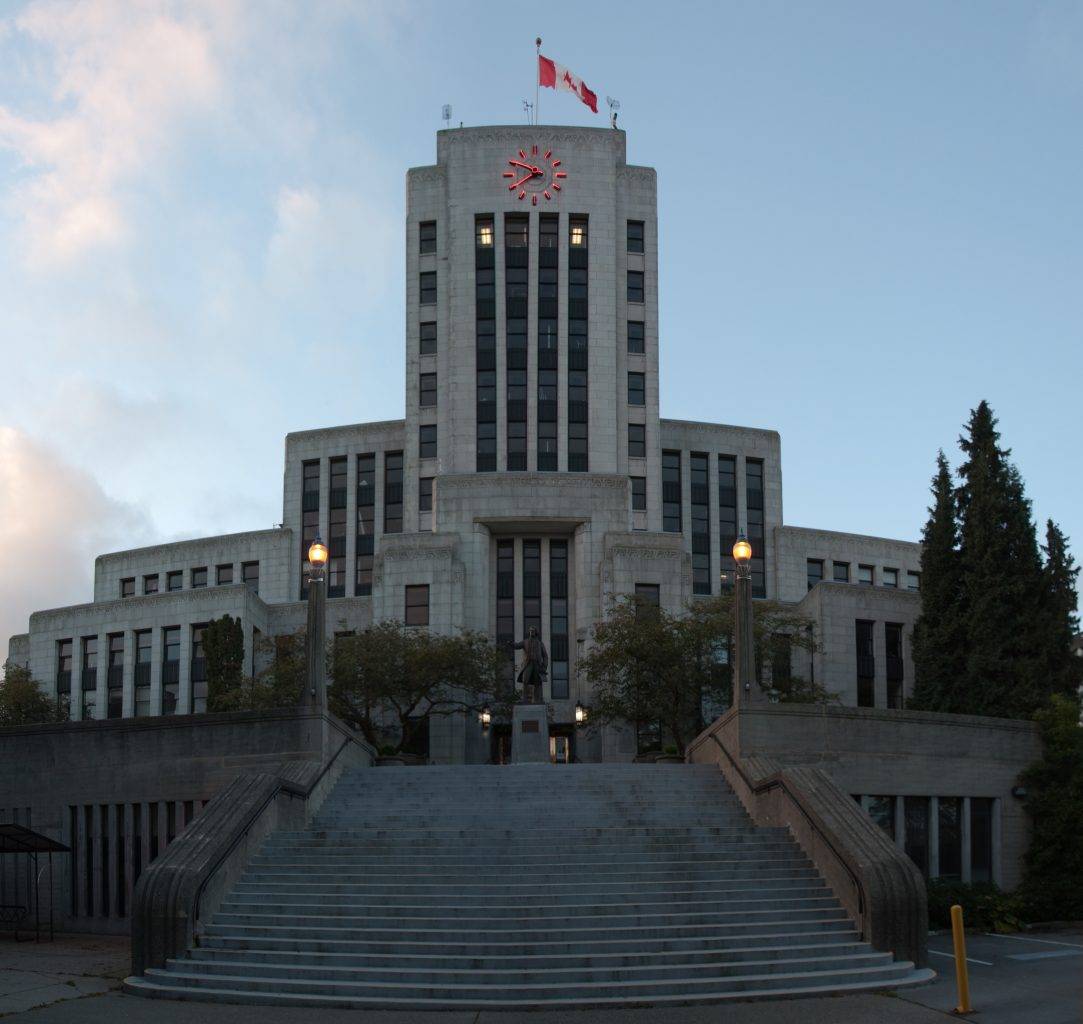
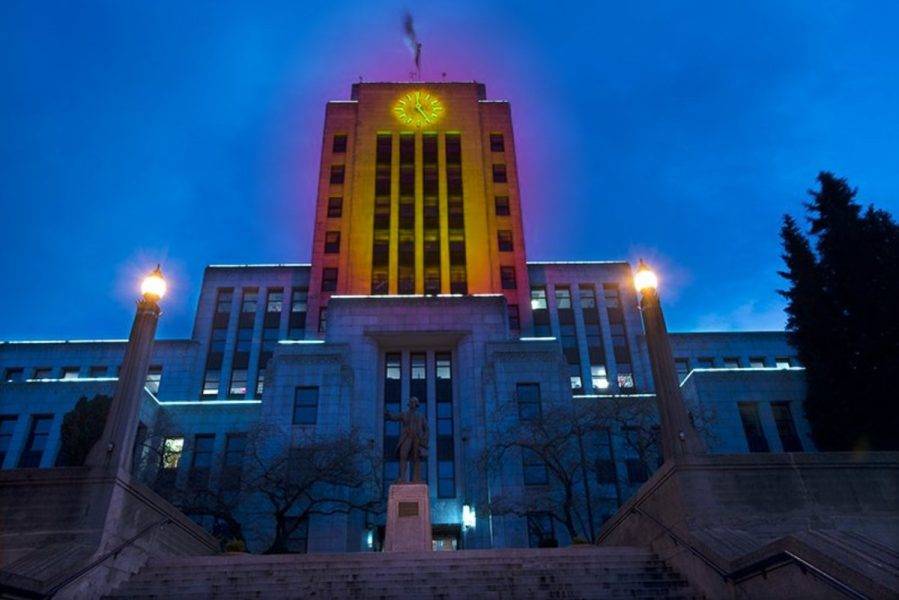


City of Vancouver
CoV Matters
selfology.co/CoV
ology.land/CoV
BC Votes: What Happens Next? Policy consequences and paths forward for municipal politics

British Columbians will go to the polls on October 15 to elect Mayors, city councils, and school board trustees in over 160 municipalities across the province. There are over 3000 candidates and more offices to fill than in any other voting opportunity available to BC voters. More than just the future of municipal governance is up for grabs. Reconciliation with Indigenous communities, solutions for the housing and homelessness crisis, the opioid epidemic, and important transportation and economic challenges all begin at the municipal level.
Join a panel of UBC Political Science faculty and alumni as we break down the results of the province’s municipal elections and their consequences for future policy and the future of local government. Please RSVP below to attend.
This event is presented in partnership with the UBC Faculty of Arts, UBC Connects Robson Square, and the Political Science Students’ Association.
Panel agenda
- 5:30 pm – Registration opens
- 6 pm – Program begins
- 7 pm – Q&A with panel
- 7:30 pm – Program ends
Panelists:
Event moderator: Dr. Gerald Baier
Priscilla Omulo (Thunder Bird Woman Consulting) is a Tsartlip First Nations woman. ZINC̸O SȽÁNI is Thunderbird Woman in SENĆOŦEN of the W̱SÁNEĆ people. She is humbled and honoured to have worked with Douglas College (Aboriginal Student Services, college-wide and departmental ProD), UBC School of Medicine, Burnaby Family Living, PLAN, Xyolhemeylh Child & Family Services, Canroots, and more. She was a candidate for Port Coquitlam Council in 2018 and is an alumnus of UBC’s Institute for Future Legislators. She is passionate about sharing her culture, traditional ways, and her experiences as an Indigenous woman in hopes to support Truth & Reconciliation and Indigenous empowerment.
Simran is a Punjabi-Canadian journalist with over six years of experience reporting in Metro Vancouver. She received her undergrad degree in political science from UBC in 2015 and then went on to graduate with a Master of Journalism degree from the UBC School of Journalism. She previously worked as the city editor at Daily Hive Vancouver and currently works as the managing editor of the Burnaby Beacon.
Carey Doberstein researches and teaches Canadian urban governance and public policy at UBC. His research has focused on governance and public policy questions related to homelessness, affordable housing, and drug policy, as well as participatory planning simulations. He regularly teaches an Urban Governance and Public Policy in Canada seminar course that applies urban politics theory to contemporary issues facing Vancouver.
Justin is the Municipal Affairs Reporter for CBC Vancouver, covering local political stories throughout British Columbia.
Several Vancouver developers say they have been asked to contribute to Mayor Kennedy Stewart’s re-election campaign
B.C. civic parties have struggled to fund campaigns since the NDP government changed donation rules in time for the 2018 municipal elections, banning corporate and union donations and limiting personal donations. It has affected Vancouver City Hall’s mayor and how he fundraises for his campaign.DARRYL DYCK/The Canadian Press
Several prominent Vancouver developers confirm they have been asked by Mayor Kennedy Stewart’s re-election team to contribute to his campaign and solicit donations on his behalf, with fundraising targets specified for them.
The developers corroborated information in a spreadsheet found on a sidewalk near city hall by Stanley Woodvine, a homeless man who tweets about interesting documents he finds. The file lists 26 names, including Vancouver Canucks owner and Aquilini Investments managing director Francesco Aquilini; Concord Pacific chief executive officer Terry Hui; former city councillor Raymond Louie, who is now CEO of Coromandel Properties; and Wesgroup Properties president Beau Jarvis.
On the spreadsheet, those listed are designated as “captains” and beside their names are columns indicating targets ranging from $5,000 to $110,000, as well as the amount raised so far.
Mr. Woodvine, who lives in a parking garage, said Wednesday that he picked up the two-page document earlier this week, ahead of the Vancouver mayoral election on Oct. 15.
While asking for political contributions is neither new nor controversial, the document has prompted Mr. Stewart’s political opponents to question whether the tactic of asking developers to act as fundraisers and meet declared targets is ethical. The list has also caused consternation from some of those who are on it.
B.C. civic parties have struggled to fund campaigns since the NDP government changed donation rules in time for the 2018 municipal elections, banning corporate and union donations and limiting personal donations. This year, the limit is $1,250.
Four people in the development community confirmed to The Globe and Mail that the document appears to be authentic because it matches requests and conversations they have had with the mayor’s team. To meet the targeted requests without breaking rules, the “captains” are encouraged to ask friends, family and people within their work networks to contribute up to the maximum amount.
A spokesperson for the mayor’s party issued a statement saying Mr. Stewart’s campaign has complied with all election rules. The statement did not directly address the document.
Housing platforms the election issue in Vancouver in October
Reliance Properties CEO Jon Stovell, who is marked down to raise a target of $12,500, confirmed he was asked to meet that target but it “is not something I agreed to.” He is listed on the document as having raised only $2,500 so far toward the campaign. He said he gives money to every legitimate political party that will accept a donation from him.
The four people contacted by The Globe said the target amount that appears next to their names is not a number they suggested, committed to or, in one case, even knew about.
The list also features a few non-developers, including former NDP cabinet minister Moe Sihota, former NDP party president Craig Keating and two women who work in tourism, hospitality and public relations.
The list does not specifically name the mayor’s party, Forward Together, but there are references to Neil, or NM, and Mark in the document. Mr. Stewart’s chief of staff is Neil Monckton, and his party’s executive director is Mark Hosak.
Mr. Monckton did not respond to a request for an interview. Mr. Hosak declined to directly address the spreadsheet.
The campaign manager for ABC, the party that is running Ken Sim for mayor, said while the document doesn’t indicate any laws were broken, the strategy challenges the spirit of the law.
“I don’t think it’s an Elections BC violation but, boy, when the mayor’s chief of staff is starting to lean on people he’s supposed to be regulating, that’s an ethical lapse,” Kareem Allam said.
Mr. Allam said ABC, like all political parties, asks people who are supportive to ask their friends and family to donate. He said his party has never asked anyone to get employees or colleagues to donate. He added that the idea of a target “crosses the line.”
Mr. Aquilini was listed with the largest target of $110,000, and the spreadsheet indicated he had raised the most at $64,750. A spokesperson for his company could not be reached by deadline.
Bob Rennie, prominent real-estate marketer, art collector and past chief fundraiser for the B.C. Liberal Party, is also on the list as having met the target of $12,500, with a note suggesting “NM to propose doubling goal on Sept. 12.” Mr. Rennie did not respond to a request for comment.
B.C. civic parties have tried to cope with the reduction in campaign donations that resulted from the 2018 rules by starting their fundraising early. Both Mr. Stewart and Mr. Sim have worked to raise money every year since the civic election four years ago.
A number of donors or groups have also come up with creative ways to donate without breaking the rules. In 2018, developer Peter Wall gave $85,000 to the campaign of mayoral candidate Hector Bremner during the period in September before the date that limits donations. (The NDP government extended the limitation period after that.)
Also in that election, negative campaign ads attacking mayoral candidates in Surrey appeared on Facebook with no information about who was paying for them.
Names of SNC employees, executives behind thousands of dollars in illegal Liberal Party donations revealed | CBC News
A confidential document sent to the Liberal Party of Canada in 2016, and obtained by CBC/Radio-Canada, reveals how top officials at the embattled engineering firm SNC-Lavalin were named in a scheme to illegally influence Canadian elections.
The list of names, compiled in 2016 by federal investigators probing political party donations and leaked to CBC’s The Fifth Estate and Radio-Canada’s Enquête, raises new questions about an agreement by the Commissioner of Canada Elections not to prosecute the company.
The federal Liberals were sent the list in a letter marked “confidential” from the Commissioner of Canada Elections — the independent office tasked with investigating election law violations — on Aug. 5, 2016. But for nearly three years, neither Elections Canada nor the Liberal Party shared that information publicly.
The investigation reveals that over a period of more than five years between 2004 and 2009, 18 former SNC-Lavalin employees, directors and some spouses contributed nearly $110,000 to the federal Liberals, including to four party leadership campaigns and four riding associations in Quebec.
According to the letter, the investigation found that SNC-Lavalin reimbursed all of those individual donations — a practice forbidden under the Canada Elections Act.
SNC also made indirect donations to the Conservative Party of just over $8,000, according to investigators.
Since 2004, corporations have not been allowed to make donations to federal political parties in order to prevent corporate influence over election campaigns.
“Money is an enormous advantage in an election campaign,” said Jeff Ayotte, a defence lawyer with expertise in Canadian election law.
“I don’t know SNC-Lavalin’s intent, but certainly, the benefit to the candidates is enormous.”
The illicit SNC-Lavalin operation went undetected for nearly a decade. Despite the evidence collected by investigators, the Commissioner of Canada Elections decided not to bring charges against the company, which is headquartered in Montreal but operates around the world.
“We know that the decisions to take part in this scheme took place at the very highest levels of SNC-Lavalin,” said Ayotte. “‘[It] seems to all suggest to me that there should have been a prosecution.”
Only 1 SNC executive charged
SNC-Lavalin avoided charges by signing what is known as a “compliance agreement” in 2016 with the Commissioner of Canada Elections after promising not to break the law in the future.
That was not the case for Conservative Peterborough MP Dean Del Mastro, who was charged by the commissioner over $21,000 in spending violations in the 2008 federal election and was represented by Ayotte at his 2014 trial.
“You would think that the more serious, more deliberate, more long-term, more sophisticated scheme involving more money and more candidates and more elections would be prosecuted,” said Ayotte.
“But just the opposite happened.”
Ayotte said the compliance agreement effectively amounts to letting SNC-Lavalin off the hook. Only one SNC-Lavalin official was charged in the scheme.
Former SNC-Lavalin president Jacques Lamarre s told CBC/Radio-Canada there was never any illegal funding scheme happening at SNC-Lavalin. (Adrian Wyld/Canadian Press)
The Commissioner of Canada Elections sent the letter to the Liberal Party in 2016 in order to have the $110,000 in improper donations returned to the federal treasury.
The Liberal Party repeatedly refused to provide the names of those involved when asked by reporters for CBC/Radio-Canada. The Conservative Party, which received $8,187.73 in the same scheme, immediately provided its list of SNC-Lavalin names to CBC/Radio-Canada when asked.
Both parties reimbursed the money to the receiver general in August 2016.
Some of those whose names appeared on the list told The Fifth Estate/Enquête that they were not involved in any illegal reimbursement scheme.
However, in his letter to the Liberal Party, the Commissioner of Canada Elections stated that all those donations listed were made, indirectly, by SNC-Lavalin itself. The commissioner stated that the SNC-Lavalin contributions were “ineligible” — meaning they violated the law — and had to be paid back.
SNC-Lavalin did not return calls from CBC/Radio-Canada. The firm’s current president, Neil Bruce, who signed the 2016 compliance agreement, stated in that agreement that all of the senior people involved in the scheme had left the engineering firm by 2016.
Prime Minister Justin Trudeau responded to the revelations on his way in to a Liberal cabinet meeting Tuesday morning.
“We recognize that 10 years ago there were issues around political financing that have been raised,” he said. “When we came to power and when I became leader of the Liberal Party, we made significant changes to the fundraising regime. We have moved forward on transparency and openness, and that is not what happens anymore.”
‘I never acted as a straw donor’
The leaked documents show that among the group donating to the Liberals was Kathleen Weil, the spouse of former senior SNC-Lavalin executive Michael Novak. Weil is a former Quebec justice minister and attorney general and a sitting member of the Quebec National Assembly.
The list shows that on June 30, 2004, four years before she was first elected to the Quebec National Assembly, Weil made a $5,000 donation to the federal Liberals that the Commissioner of Canada Elections found was “reimbursed” by SNC-Lavalin.
The letter states Weil made the contribution on the same day that nine other SNC-Lavalin executives or their spouses made similar donations.
In a phone call with CBC/Radio Canada, Weil denied any knowledge of the scheme.
The leaked documents show Kathleen Weil, a former Quebec justice minister and the spouse of former senior SNC-Lavalin executive Michael Novak, was among the group donating to the Liberals. Weil denied any knowledge of the scheme. (Jacques Boissinot/Canadian Press)
“I would never have and I never acted as a straw donor.”
In an emailed statement, Weil said, “My donations to political parties have always been made in good faith and on a personal basis without compensation or consideration and without reimbursement or promise of reimbursement from whomsoever.”
Weil’s husband, Michael Novak, also firmly denied he received bonuses to compensate him or his wife for their political donations.
The Commissioner of Canada Elections states in the letter that Novak made three donations, adding up to $5,672.91, for which he was compensated by SNC-Lavalin in 2004 and 2008.
In a phone interview, Novak said he met with the commissioner’s investigators in 2014 and that he told them they were mistaken.
“We were never reimbursed,” Novak told CBC/Radio-Canada.
Novak said he received numerous bonuses from SNC-Lavalin throughout the years, but as far as he knew, none was linked to his political donations. If investigators found evidence of SNC-Lavalin repayments in the form of bonuses, “it would have been done without my knowledge,” he said.
Novak said that SNC-Lavalin actively encouraged company officials to make donations, and even collected the cheques to deliver to the Liberal Party.
Novak insisted there was “nothing … untoward” about making donations like this and that he was unaware that there was an illegal reimbursement scheme going on.
Most of the senior executives on the list contacted by CBC/Radio-Canada declined to be interviewed.
‘We were given a bonus’
But two non-executive SNC-Lavalin employees who agreed to speak with The Fifth Estate/Enquête about the scheme said they were definitely told their political donations would be reimbursed in the form of bonuses from SNC-Lavalin.
One of those was Jean Lefebvre, who worked for the firm as an engineer. Contacted at his home in Saint-Bruno, Que., Lefebvre said he was specifically asked to donate to the Liberal Party.
“We were given a bonus that was double the amount donated,” he said.
He explained that the size of the bonus was intended to compensate him for the taxes he would have to pay on the bonus.
According to investigators with the Commissioner of Canada Elections, Pierre Anctil, a former SNC-Lavalin vice president, was paid $4,462.88 by the company as compensation for his donation to the Liberal Party on June 30, 2004. (Axium Infrastructure)
Lefebvre said he understood that the president of the company at the time, Jacques Lamarre, initiated the scheme and that the legal department at SNC-Lavalin had signed off.
“Normally, our legal advisers would be informed of the practice that the president wanted to put forward, which was to help political parties to receive donations despite the limits imposed on companies regarding political donations,” Lefebvre said.
Despite the findings of the Commissioner of Canada Elections, only one person was charged. Normand Morin, a former SNC vice-president, was charged in May 2018. Last November, he pleaded guilty to violating two counts of the Canada Elections Act by “acting in collusion with certain senior officials of SNC-Lavalin” and for soliciting contributions “on behalf of federal political entities.”
He received fines of $2,000. Three other charges were dropped.
That guilty plea avoided a trial that may have exposed more details of the SNC-Lavalin scheme.
In a phone interview, Morin said he did not know why he was the only one held responsible. “It’s a mystery for me,” he said.
Morin declined to name his contacts at the federal Liberal Party.
“It was many people,” he said. “You should aim your investigation towards the parties.”
Name included ‘in error’
According to investigators with the Commissioner of Canada Elections, Pierre Anctil, a former SNC-Lavalin vice-president, was paid $4,462.88 by SNC-Lavalin as compensation for his donation to the Liberal Party of Canada on June 30, 2004.
Reached at his home in Westmount, on the island of Montreal, Anctil denied he had been compensated by SNC-Lavalin for that donation.
When shown a copy of the letter from the Commissioner of Canada Elections to the Liberal Party with the 18 names, Anctil said that his name was included “in error” and that he was never reimbursed.
In an affidavit in 2015 filed with the Charbonneau Commission, which was probing corruption in the Quebec construction industry, Anctil stated he knew the firm was running a similar political donation scheme at the provincial level. He said he was initially reluctant to get involved but went ahead after his boss, SNC-Lavalin president Jacques Lamarre, insisted.
Anctil said he was asked to solicit employees to make donations. Anctil said while he never received any of the bonuses personally, he told other employees they would get compensated by SNC-Lavalin if they asked.
Lamarre told CBC/Radio-Canada there was never any illegal funding scheme happening at SNC-Lavalin and that Anctil and others are mistaken.
- Send tips on this story to Harvey.Cashore@cbc.ca or call 416-526-4704
Marylynne Campbell, a former senior vice-president at SNC-Lavalin who appears on the leaked list of names, also denied knowing about the scheme.
According to the elections commissioner, Campbell made improper donations of $5,000 to the federal Liberal Party in 2005, as well as $5,000 in 2006 to Bob Rae’s Liberal leadership campaign. Campbell also donated $3,137.73 to the federal Conservative Party.
Reached by phone, Campbell said Morin had “pressured” her and others to make donations to Quebec and federal political parties. Still, Campbell said she told investigators when they interviewed her she did not receive any compensation from SNC-Lavalin.
All of the former SNC-Lavalin employees and spouses named in the list who spoke to The Fifth Estate/Enquête said they were not contacted by the Commissioner of Canada Elections to let them know their names were on the document.
Compliance agreements for ‘minor’ infractions
Ayotte said Canadians need to know more about why SNC-Lavalin was granted a compliance agreement that avoided any criminal charges.
He said the decision to lay charges against Del Mastro — and his cousin David Del Mastro, who was also charged in 2014 for using corporate money to compensate private election donations but was later acquitted — but not SNC-Lavalin may appear to be a double standard.
“Given the facts of [the SNC-Lavalin] case, it seems to be completely out of line with … the way in which Elections Canada have treated other people in similar situations,” Ayotte said.
In 2014, former Conservative MP Dean Del Mastro was charged by the commissioner for spending violations of $21,000 in the 2008 federal election. (Fred Thornhill/Canadian Press)
According to an academic paper written in 2005 by David Brock, who would go on to become the chief electoral officer of the Northwest Territories, compliance agreements were not intended to be used for serious violations of the Canada Elections Act.
“The primary reason for enacting this new method of enforcement was to provide an alternative to prosecution, and thus deal more effectively with so-called ‘minor” infractions of the Canada Elections Act,” he wrote.
Still, the law allows the commissioner wide discretion as to when to offer a compliance agreement or when to prosecute.
The commissioner’s own guidelines on whether to prosecute campaign violations state that investigators must consider how serious the offence was, whether it was part of a deliberate “scheme” or an isolated event and would a prosecution help “maintain public confidence in the electoral system.”
The list of donations includes contributions to the 2006 and 2008 Liberal leadership campaigns of Stéphane Dion, right, Michael Ignatieff, left, and others. (Ryan Remiorz/The Canadian Press)
The Commissioner of Canada Elections, Yves Côté, declined an interview request. His spokesperson, Michelle Laliberté, said the commissioner “conducted a thorough investigation using all of the tools that were available to him.” She said the evidence gathered supported the laying of charges against Morin and that the reasons for the decision to offer a compliance agreement to SNC-Lavalin are stated publicly on the commissioner’s website.
The Liberal Party’s revenue chair, Stephen Bronfman, did not return voice messages left by CBC/Radio-Canada. Party spokesman Braeden Caley wrote in an email that “The Liberal Party of Canada fully complies with the Canada Elections Act and all Elections Canada regulations for fundraising and donations and expects all people donating to our party to do so lawfully and to follow the same rules.”
Conservative Party spokesperson Cory Hann said his party “expect[s] people donating to the Conservative Party are doing so truthfully and by the letter of the law in accordance with Elections Canada rules and regulations, and the Elections Act.”
Donations to Liberal Party by SNC employees, executives, spouses
Donations to Conservative Party of Canada by SNC employees, executives
Names of SNC employees, executives behind thousands of dollars in illegal Liberal Party donations revealed | CBC News Φ SNC員工的姓名,數千美元非法自由黨捐款背後的高管透露|加拿大廣播公司新聞 Source: https://www.cbc.ca/news/politics/snc-lavalin-liberal-donors-list-canada-elections-1.5114537 This web page was saved on Friday, Sep 16 2022. |
≡ Relative Knowledge ≡
|
Vancouver mayor proposes team of 25 counsellors to address street disorder if re-elected Φ 溫哥華市長提議由25名顧問組成的小組,如果再次當選,將解決街頭混亂問題 |
Several Vancouver developers say they have been asked to contribute to Mayor Kennedy Stewart’s re-election campaign
B.C. civic parties have struggled to fund campaigns since the NDP government changed donation rules in time for the 2018 municipal elections, banning corporate and union donations and limiting personal donations. It has affected Vancouver City Hall’s mayor and how he fundraises for his campaign.DARRYL DYCK/The Canadian Press
Several prominent Vancouver developers confirm they have been asked by Mayor Kennedy Stewart’s re-election team to contribute to his campaign and solicit donations on his behalf, with fundraising targets specified for them.
The developers corroborated information in a spreadsheet found on a sidewalk near city hall by Stanley Woodvine, a homeless man who tweets about interesting documents he finds. The file lists 26 names, including Vancouver Canucks owner and Aquilini Investments managing director Francesco Aquilini; Concord Pacific chief executive officer Terry Hui; former city councillor Raymond Louie, who is now CEO of Coromandel Properties; and Wesgroup Properties president Beau Jarvis.
On the spreadsheet, those listed are designated as “captains” and beside their names are columns indicating targets ranging from $5,000 to $110,000, as well as the amount raised so far.
Mr. Woodvine, who lives in a parking garage, said Wednesday that he picked up the two-page document earlier this week, ahead of the Vancouver mayoral election on Oct. 15.
While asking for political contributions is neither new nor controversial, the document has prompted Mr. Stewart’s political opponents to question whether the tactic of asking developers to act as fundraisers and meet declared targets is ethical. The list has also caused consternation from some of those who are on it.
B.C. civic parties have struggled to fund campaigns since the NDP government changed donation rules in time for the 2018 municipal elections, banning corporate and union donations and limiting personal donations. This year, the limit is $1,250.
Four people in the development community confirmed to The Globe and Mail that the document appears to be authentic because it matches requests and conversations they have had with the mayor’s team. To meet the targeted requests without breaking rules, the “captains” are encouraged to ask friends, family and people within their work networks to contribute up to the maximum amount.
A spokesperson for the mayor’s party issued a statement saying Mr. Stewart’s campaign has complied with all election rules. The statement did not directly address the document.
Housing platforms the election issue in Vancouver in October
Reliance Properties CEO Jon Stovell, who is marked down to raise a target of $12,500, confirmed he was asked to meet that target but it “is not something I agreed to.” He is listed on the document as having raised only $2,500 so far toward the campaign. He said he gives money to every legitimate political party that will accept a donation from him.
The four people contacted by The Globe said the target amount that appears next to their names is not a number they suggested, committed to or, in one case, even knew about.
The list also features a few non-developers, including former NDP cabinet minister Moe Sihota, former NDP party president Craig Keating and two women who work in tourism, hospitality and public relations.
The list does not specifically name the mayor’s party, Forward Together, but there are references to Neil, or NM, and Mark in the document. Mr. Stewart’s chief of staff is Neil Monckton, and his party’s executive director is Mark Hosak.
Mr. Monckton did not respond to a request for an interview. Mr. Hosak declined to directly address the spreadsheet.
The campaign manager for ABC, the party that is running Ken Sim for mayor, said while the document doesn’t indicate any laws were broken, the strategy challenges the spirit of the law.
“I don’t think it’s an Elections BC violation but, boy, when the mayor’s chief of staff is starting to lean on people he’s supposed to be regulating, that’s an ethical lapse,” Kareem Allam said.
Mr. Allam said ABC, like all political parties, asks people who are supportive to ask their friends and family to donate. He said his party has never asked anyone to get employees or colleagues to donate. He added that the idea of a target “crosses the line.”
Mr. Aquilini was listed with the largest target of $110,000, and the spreadsheet indicated he had raised the most at $64,750. A spokesperson for his company could not be reached by deadline.
Bob Rennie, prominent real-estate marketer, art collector and past chief fundraiser for the B.C. Liberal Party, is also on the list as having met the target of $12,500, with a note suggesting “NM to propose doubling goal on Sept. 12.” Mr. Rennie did not respond to a request for comment.
B.C. civic parties have tried to cope with the reduction in campaign donations that resulted from the 2018 rules by starting their fundraising early. Both Mr. Stewart and Mr. Sim have worked to raise money every year since the civic election four years ago.
A number of donors or groups have also come up with creative ways to donate without breaking the rules. In 2018, developer Peter Wall gave $85,000 to the campaign of mayoral candidate Hector Bremner during the period in September before the date that limits donations. (The NDP government extended the limitation period after that.)
Also in that election, negative campaign ads attacking mayoral candidates in Surrey appeared on Facebook with no information about who was paying for them.
14 groups with 1 million+ supporters call on federal Lobbying Commissioner to stop gutting ethical lobbying rules
|
Source: https://democracywatch.ca/14-groups-with-1-million-supporters-call-on-federal-lobbying-commissioner-to-stop-gutting-ethical-lobbying-rules/ 14 groups with 1 million+ supporters call on federal Lobbying Commissioner to stop gutting ethical lobbying rules Φ 擁有100多萬支援者的14個團體呼籲聯邦遊說專員停止破壞道德遊說規則 |
NDP wants Elections Ontario to investigate donations to PCs by vaccine clinic company directors | CBC News
The Ontario NDP is raising red flags over political donations made to Doug Ford’s Progressive Conservative Party by the directors of a company that got a sole-source provincial contract to run vaccine clinics.
All four board members of a company called FH Health made the maximum allowable donations to the Ontario PCs within a few days of each other in September, according to Elections Ontario records. The government awarded FH Health a contract to offer COVID-19 booster shots at 10 clinics in the Toronto area earlier this month.
The news was first reported by the online publication Queen’s Park Today.
Other people connected to FH Health also made maximum donations to the PC Party in the same short time frame, including the wives of two company directors, as well as a brother-in-law and business colleagues, the NDP revealed Thursday.
The PC Party received a total of $42,600 in September from the four board members and 10 others with links to the company. Ontario law allows an individual to donate no more than $3,300 annually to each political party.
Premier Doug Ford and Health Minister Christine Elliott, joined by Toronto Mayor John Tory, visited the mass vaccination clinic at the Toronto Zoo on Jan. 12. The clinic is one of 10 in the Greater Toronto Area being operated by the company FH Health, under a contract with the provincial government. (Evan Mitsui/CBC)
The pattern of donations appears “shady,” said the NDP’s ethics and accountability critic Taras Natyshak.
“If that was done in a coordinated fashion through the corporation or through the PC party, then it potentially breaks the law,” Nayshak said during a news conference on Thursday.
“When you’ve got executives making the maximum donation and their family members making the maximum donation all around the same time, that isn’t just a fluke,” he said.
Ontario’s campaign finance laws make it illegal for companies to provide money to individuals to in turn donate to a political party, and also make it illegal for parties to accept any such donation.
“We follow all rules and guidelines set out by Elections Ontario and the Election Finances Act,” said a PC Party statement issued Thursday.
Corporations and unions have been banned from donating to Ontario’s political parties since 2017. It is also illegal for companies or unions to provide money to individuals for political contributions. (Mark Blinch/Canadian Press)
FH Health chief of staff Patrick Kasebzarif was quoted Wednesday by Queen’s Park Today as saying the individuals made donations “on their own and most certainly not at the behest or suggestion of the company.”
CBC News asked FH Health Thursday morning to respond to the latest allegations.
The New Democrats are calling on the province’s auditor general to investigate the awarding of the vaccine clinic contract to FH Health. The NDP also wants the chief electoral officer to probe whether the donations broke Ontario’s campaign finance laws.
“It’s egregious and it deserves to be investigated,” said Natyshak. “It looks sketchy, it looks fishy. It looks potentially like a quid pro quo. You scratch my back, I scratch yours.”
The Elections Ontario database shows the following contributions to the Ontario PC Party in September from FH Health board members: $3,300: Melody Adhami-Dorrani (president).
- $3,300: Sepehr Seyedi (chair).
- $3,300: Michael Kimel (treasurer).
- $3,300: David Diamond (director).
There are also $3,300 donations to the PC party, all registered in the Elections Ontario database in September, from Kimel’s wife, father, brother and sister-in-law, as well as Diamond’s wife, according to the NDP’s research.
These donations to the Ontario PC Party are reported in the Elections Ontario database. Researchers for the NDP established the connections between the donors and the company FH Health, which won a sole-source contract to operate COVID-19 vaccination clinics. (Ontario NDP)
One of the 10 immunization clinics run by FH Health is at the Toronto Zoo, which Ford toured earlier this month along with Toronto Mayor John Tory and Health Minister Christine Elliott.
The decision to award the vaccine clinic contract to the company was made by provincial government staff, not by Ford’s cabinet minister overseeing vaccine logistics, Solicitor General Sylvia Jones, said a spokesperson.
“The Ministry of the Solicitor General entered into an emergency procurement with FH Health to establish additional vaccine clinics, to urgently accelerate boosters for education workers before the return of in-person learning,” said Jones’s spokesperson, Stephen Warner, in an email.
Before getting the contract, FH Health had not conducted vaccinations but had run some COVID-19 testing sites. Ontario Health awarded the company a contract for mobile testing, through a competitive bidding process.
NDP wants Elections Ontario to investigate donations to PCs by vaccine clinic company directors | CBC News Φ 新民主黨希望安大略省選舉局調查疫苗診所公司董事對PC的捐贈|加拿大廣播公司新聞 This web page was saved on Friday, Sep 16 2022.
|
Odeur nauséabonde de fric à Ottawa
Odeur nauséabonde de fric à Ottawa
OTTAWA | S’il est vrai qu’argent et politique ne font jamais bon ménage, une odeur nauséabonde émane d’Ottawa.
Le député du Bloc québécois Xavier Barsalou-Duval nous apprend cette semaine que le Parti libéral du Canada profite grassement de la générosité de donateurs aisés à la recherche d’influence.
Des centaines de grands patrons, lobbyistes et groupes d’intérêt ont versé à sa caisse plus de 1,5 million $ de 2015 à 2019.
- Barsalou-Duval a lancé cette semaine un site web dans lequel il a colligé son information.
On y découvre une proximité troublante entre l’argent et le parti au pouvoir.
Les patrons et lobbyistes de près de 20 industries se bousculent pour contribuer à la caisse du PLC. Des industries comme l’armement, le cannabis, les géants du web, le pétrole, les banques, les cabinets d’avocats et comptables figurent dans la liste dressée par lle député bloquiste.
Les plus grandes multinationales canadiennes et québécoises en font partie. Tout comme de puissantes familles comme les Desmarais et les Irving.
Une loi laxiste
Les entreprises n’ont plus le droit de financer les partis politiques fédéraux depuis 2004. Mais un plafond trop généreux de 3200 $ en dons par année leur permet de contourner la loi, selon Xavier Barsalou-Duval.
Il est effectivement temps d’abaisser ce plafond. Monsieur et madame Tout-le-monde n’ont pas les moyens de donner plus de 3000 $ par année à un parti. Une limite aussi élevée ne peut que servir les intérêts des plus puissants.
« Quand il y a cinq, six, sept ou huit personnes de la même entreprise qui financent le parti, j’ai de la misère à croire à un hasard », soutient le député.
Lorsqu’une entreprise, à travers ses dirigeants et lobbyistes, donne des dizaines de milliers $ en contributions, il peut être tentant pour les élus de renvoyer l’ascenseur.
Ottawa n’a pas besoin d’aller bien loin pour s’inspirer d’un modèle de financement plus juste. Le Québec a resserré de façon importante le financement des partis à la suite de la Commission Charbonneau.
Les dons ont été limités à 100 $ par année, 200 $ en année électorale. Compte tenu de la taille du Canada, le fédéral pourrait choisir d’établir un plafond un peu plus élevé.
La Commission Charbonneau avait permis de mettre en lumière les pratiques douteuses, voire illégales, de contributions politiques, notamment par des prête-noms.
Le modèle de financement des partis en vigueur actuellement au fédéral ouvre la porte à ce genre d’abus.
Opacité
Il n’y a rien d’illégal dans ce que le député du Bloc a découvert. Tous les partis comptent sur la générosité des élites économiques pour se financer. Il y a fort à parier que plusieurs des noms qui apparaissent dans la toile du réseau libéral sont aussi généreux envers d’autres formations politiques fédérales.
L’équipe du député bloquiste a mis six mois pour lever le voile sur une partie des finances du PLC. Six mois ! Un vrai travail de moine.
Le député a basé ses recherches sur des données publiques, qui sont malheureusement un véritable fouillis. Ottawa devrait éliminer ces embûches qui contribuent à l’opacité du financement des partis.
Ces derniers ont besoin d’argent pour payer leurs employés, faire du recrutement, élaborer des politiques.
Les partis politiques utilisent aussi leur trésor de guerre pour des causes beaucoup moins nobles, comme pour démoniser leurs adversaires à coup de pubs négatives et alimenter leur propagande.
Pendant ce temps, les journalistes dont le travail est de démêler le vrai du faux sont de moins en moins nombreux.
Le pouvoir de l’argent en politique contribue sans doute à alimenter le populisme. On le voit aux États-Unis, où les partis profitent de ressources financières quasi illimitées.
Nous avons tout intérêt, ici, à limiter le pouvoir de l’argent pour protéger nos institutions démocratiques.
Voici la liste des industries dont les dirigeants, cadres et lobbyistes ont été les plus généreux avec le PLC. On retrouve entre parenthèses des exemples d’organisations faisant partie de ces industries.
- Think tank 164 000 $ (L’idée fédérale, C.D. Howe Institute, Institut Fraser)
- Cabinets d’avocats 159 000 $ (Miller Thomson, Fasken Martineau Dumoulin)
- Médias et télécommunications 152 000 $ (Bell, Telus, La Presse, Rogers)
- Grandes entreprises 124 000 $ (Canadien National, Maple Leaf, Loblaws)
- Associations religieuses 119 000 $
- Pétrolières 117 000 $ (Enbridge, Suncor, Esso)
- Hauts fonctionnaires fédéraux 181 000 $ (Revenu Canada, Affaires mondiales, Justice Canada)
- Groupes d’intérêt 100 000 $ (Chambre de commerce du Canada, Association canadienne pour l’OTAN)
- Géants du web 89 000 $ (Google, Uber, Facebook, Netflix)
- Québec inc. 83 000 $ (Bombardier, Power Corporation, Molson Coors)
- Armement 75 000 $
- Firmes de lobby 72 000 $
- Banques 70 000 $
- Cabinets comptables 69 000 $
- Minières 69 000 $
- Assurances 66 000 $
- Cannabis 50 000 $
- Institutions publiques 48 000 $
- Haute finance 33 000 $
– Avec la collaboration de Sarah Daoust-Braun
Note méthodologique : Un petit nombre de donateurs peuvent se retrouver dans plus d’une catégorie.
Source : www.financementliberal.com
Odeur nauséabonde de fric à Ottawa Φ 渥太華的難聞錢味 Source: https://www.journaldemontreal.com/2019/06/12/odeur-nauseabonde-de-fric-a-ottawa This web page was saved on Friday, Sep 16 2022. |
Home » City of Vancouver—CoV Matters
TIME TABLE


≡ Relative Knowledge ≡
Home » City of Vancouver—CoV Matters
On What Matters
Bookmarkable

Guiding Words in Steve Jobs’ Mind Leading to the Advent of the iPhone
Guiding Words in Steve Jobs’ Mind Leading to the Advent of the
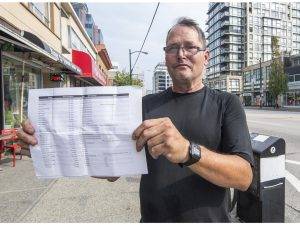
Daphne Bramham: Vancouver mayor taps developers to fund re-election | Vancouver Sun
has the charisma of not being charismatic has the charisma of not
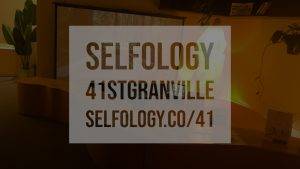
Space J at Selfology Granville & 41st Vancouver
You are a flower of wonder and delight
You fill my
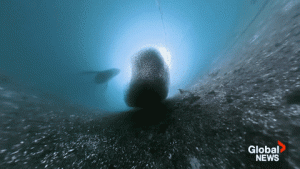
When We Fail: How a Dropped Camera Taught Us About Hope, Faith, and the Beauty of Messing Up
When things fall apart (or into the ocean), they might just

April Fools’ Carbon Tax Surge: how a CO2e Hike Sparks Political Fumes
Discover the intricacies of Canada’s carbon tax policy, navigating through the political debates surrounding the proposed surge in CO2e rates.

